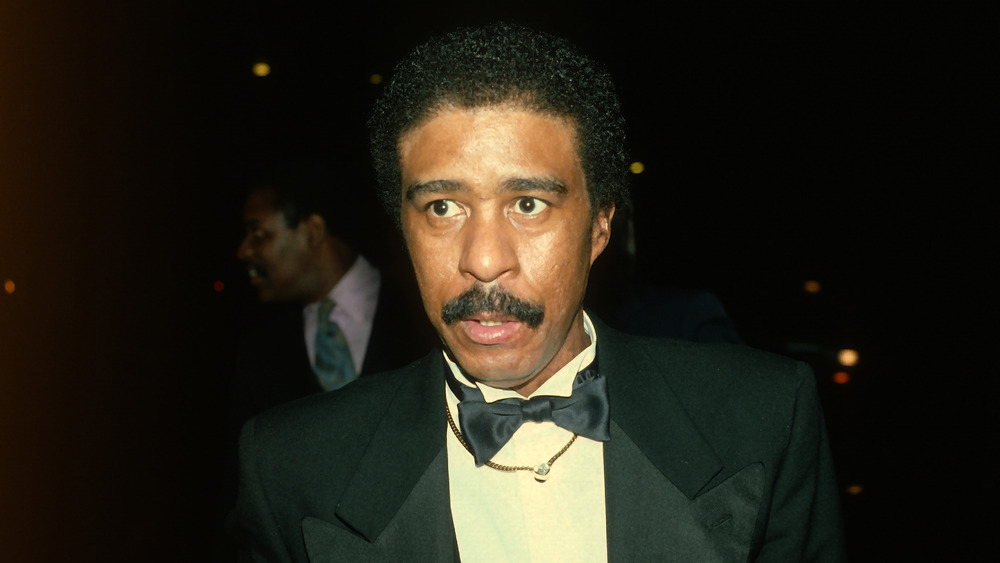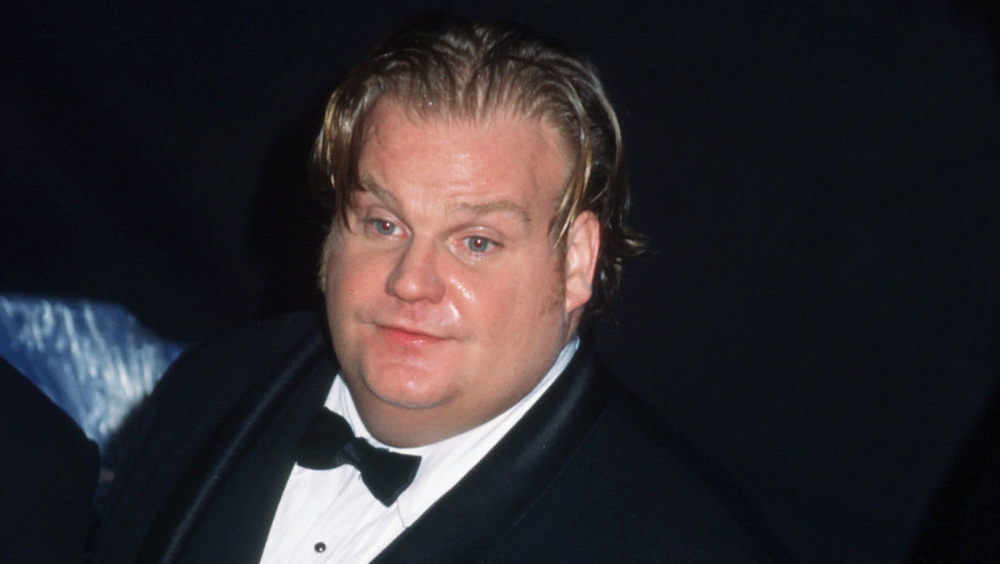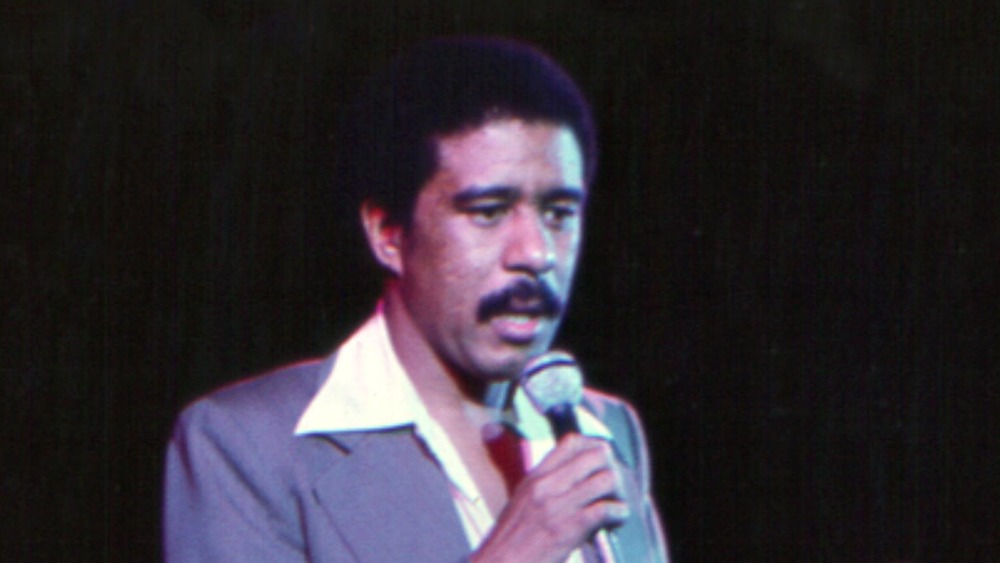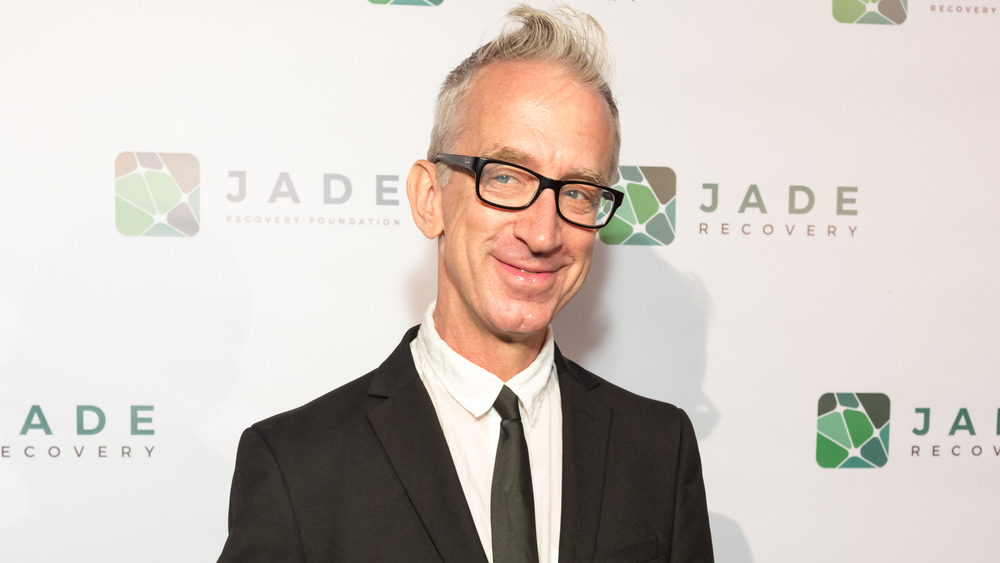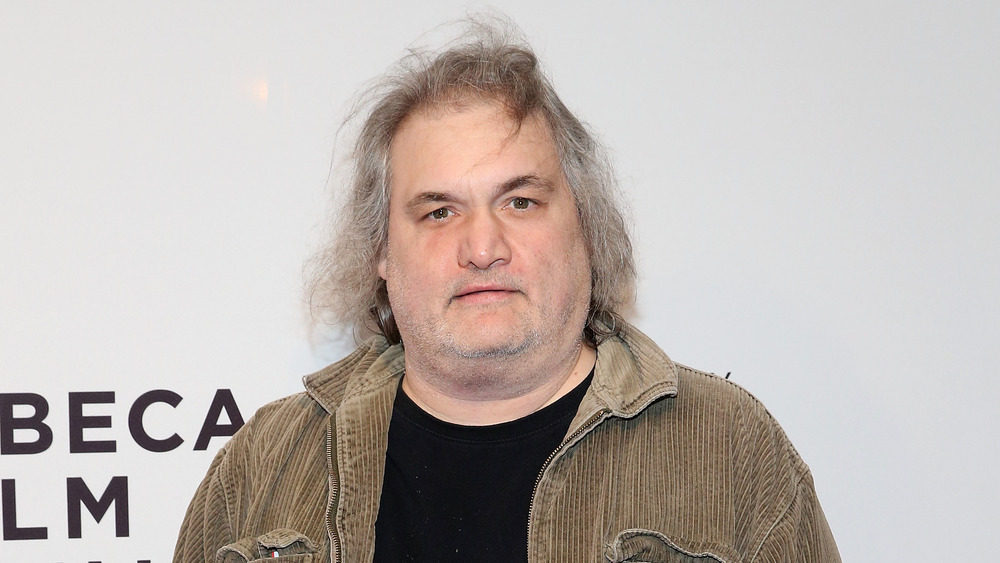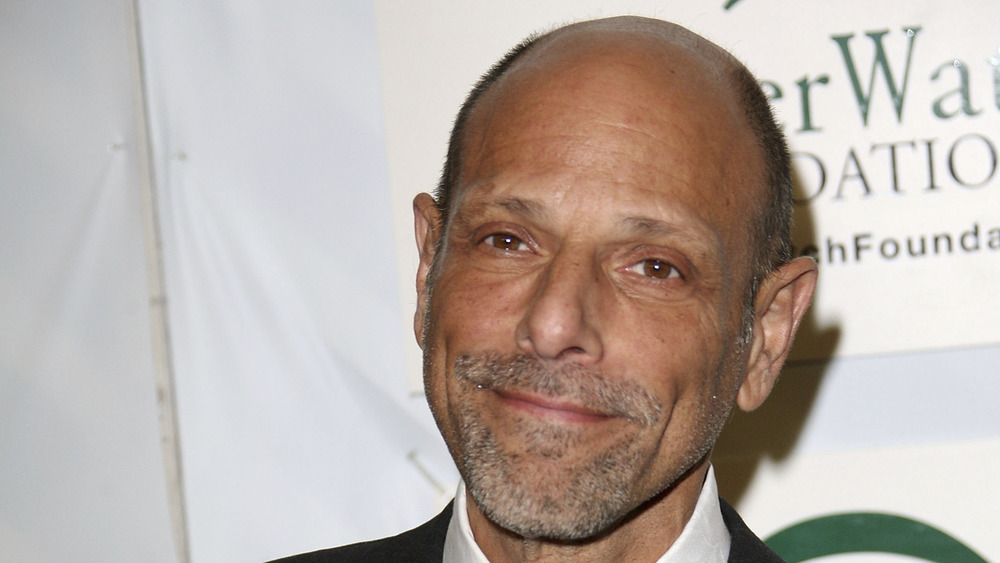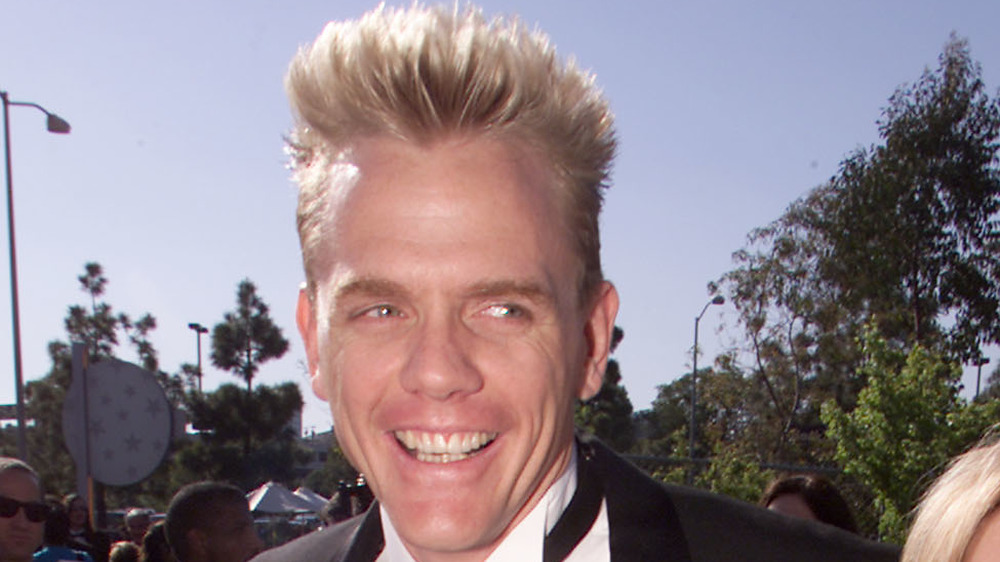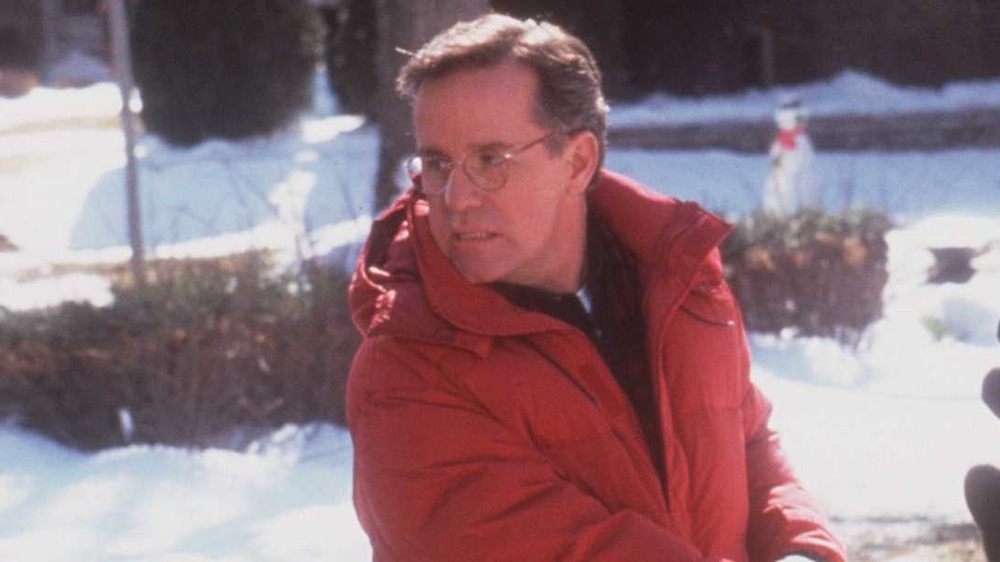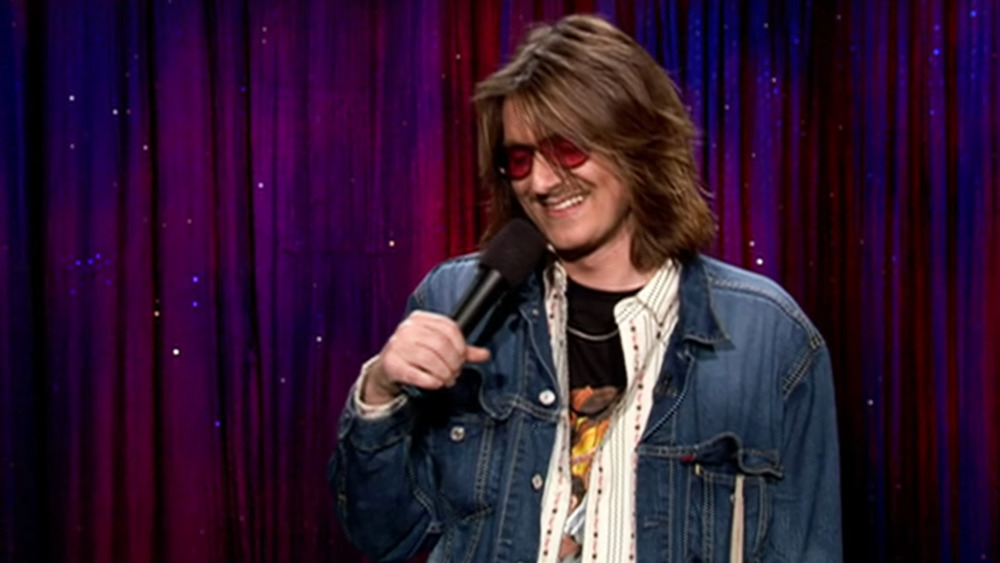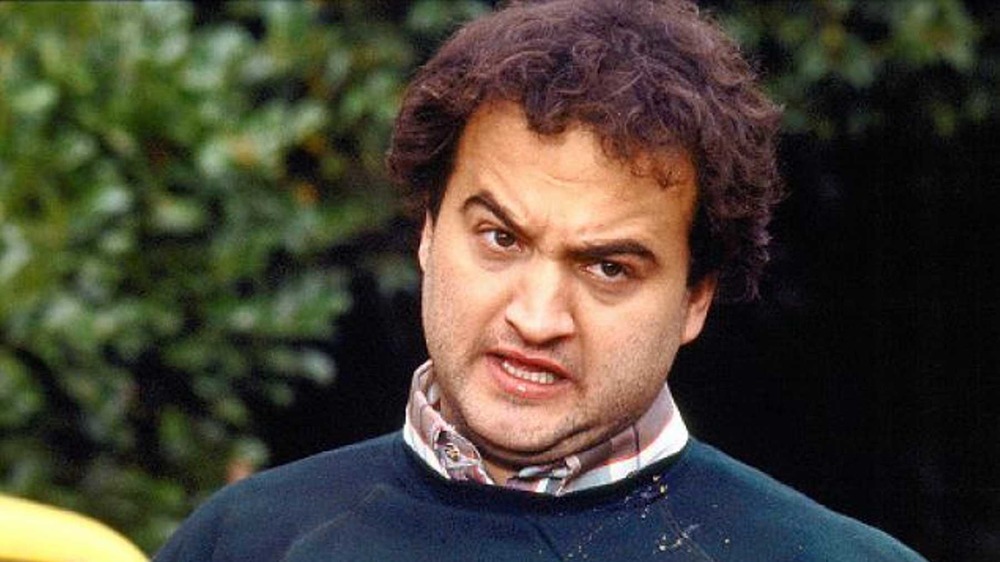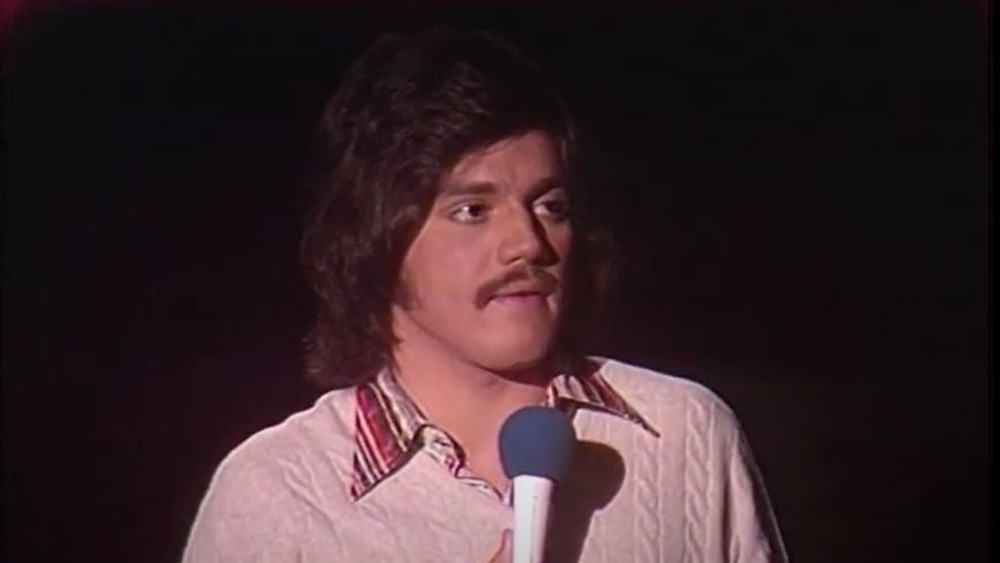Comedians Whose Lives Were More Tragedy Than Comedy
There's an old maxim among comedy enthusiasts: Comedy equals tragedy, plus time. Few hang on to the idea that stand-up comics are cheery people in private anymore — we know that many comedians fit the "sad clown" archetype better. That isn't to say that most comics aren't, all things considered, normal people who have normal lives. But a select few comedians have had lives primarily defined by tragedy. Their ability to put on a good show is a testament to their talent and strength: Despite the ways they suffered, they found ways to provide joy. We're here to celebrate their lives, work, and legacies by understanding the circumstances that forged them into such pioneering performers.
Fair warning: This article discusses many sensitive subjects, including drug abuse, suicide, assault, and abuse. If you or someone you know is having suicidal thoughts, please call the National Suicide Prevention Lifeline at 1-800-273-TALK (8255) or text HOME to the Crisis Text Line at 741741.
Chris Farley
What made Chris Farley famous is, ultimately, what also killed him. His public persona as an electric goofball couldn't have been a sharper contrast to his private self: He was gentle, delicate man who was deeply self-conscious about his size. As fellow Saturday Night Live cast member Chris Rock said, via New York Magazine, "As funny as [Farley's Chippendales sketch] was, and as many accolades as he got for it, it's one of the things that killed him."
Farley was relentlessly bullied as a child. He learned to mock himself as a defense mechanism, but his natural aptitude for comedy meant he never came to terms with his own insecurities, which were exacerbated by a public life. Compounding this were his issues with substance abuse. He went to rehab at least 17 times, and tried countless programs to get his weight under control. None of these methods lasted.
Towards the end of his life, Farley's struggles were a matter of public record, but nobody outside those closest to him knew how bad they'd become. His life ended after he went on a four-day bender fresh out of detox: He collapsed in a hotel room and died of an overdose in 1997, at the age of 33. Though his life ended too early, his talent lives on.
RIchard Pryor
Richard Pryor's ability to turn terrible things that happened to him into comedy made him a legend. He had plenty of material: Pryor grew up in a brothel, and endured horrific abuse. In the midst of this misery, he found something that got him through it: He was naturally funny. Tragically, Pryor never quite escaped the cycle of violence — Pryor was married seven times to six women, several of whom publicly accused him of assault. One conflict even saw him shoot up his own car in his own driveway, which led to a famous standup bit.
Pryor battled substance abuse for a good chunk of his adult life, which made him a big enough liability that Warner Bros. forbid Mel Brooks from casting him in Blazing Saddles. This was exacerbated after his grandmother died in 1978, an event that sent him into a deep depression. This led to one of the defining moments of his life: Setting himself on fire in 1980. Most assume it was a freebasing accident, but the reality is that he doused himself in alcohol. This, too, was added to his standup set.
In 1986, Pryor was diagnosed with multiple sclerosis. Within a decade, he was confined to a wheelchair. He also had a history of heart attacks, one of which killed him at the age of 65. If there is a happy ending, it's that his widow claims he died with a smile on his face.
Andy Dick
Andy Dick is, at this point, more famous for outlandish behavior and legal trouble than he is for acting or comedy. There's no excuse for his behavior, but it is worth knowing that it's the public manifestation of a lifetime spent battling substance abuse and personal tragedy. Dick told Vice that he entered rehab for the 20th time in 2014. This sobriety lasted several years, before he relapsed and faced more legal troubles.
Even though he's burned almost all of his bridges, comedians still speak highly of Dick's talents. Pauly Shore said Dick "was this raw, untouched talent ... before he went super wild in his personal life." On an episode of The Joe Rogan Experience, Rogan and guest Nick Kroll claimed "Sober Andy" is hilarious and sweet, while "Drunk Andy" is miserable.
Few things sum Dick up better than his on-and-off feud with Jon Lovitz. Their conflict started after Lovitz joined season five of NewsRadio, to replace the then-recently departed Phil Hartman. Lovitz knew that Dick reintroduced Brynn, Hartman's wife, to cocaine, and as such, blamed him for Hartman's murder. This made for a tense atmosphere on set, but eventually, they made up ... only for a liquored-up Dick to approach Lovitz years later to say, "'I put the Phil Hartman hex on you, you're the next one to die." Soon after, Lovitz beat up Dick at the Laugh Factory.
Artie Lange
Artie Lange has made more headlines in the past decade or so for self-destructive behavior than for his comedy. It's not just his drug habits that are part of his tragic life, though. Lange's father installed TV antennas for a living, and as a kid, Artie would help hold the ladder. When Artie turned 18 and was off at college, his father fell off a ladder and became a quadriplegic. Artie felt guilty he wasn't there to hold the ladder, and his father's death several years later from bedsores and diabetes haunted him.
Lange had a natural talent for comedy, and was part of the original cast of MadTV. His addictions proved an issue during his time on the show, and he was fired after two seasons. Howard Stern then hired Lange for his radio show, where he spent nearly a decade before leaving after a drug-induced fight with an assistant.
During his time on MadTV, Lange attempted suicide at least twice. He also almost killed himself in the midst of a four-day heroin binge in 2010. Luckily, his mother found him and rushed him to the hospital. He spent just under two years getting treatment. As with any addiction, it hasn't all been smooth sailing — he's been arrested for drug offenses and gone through rehab several times since. Still, his fans have nothing but good wishes for him on the road ahead.
Robert Schimmel
When Robert Schimmel died in a car accident in 2010, most obituaries made mention of his tragic life. Schimmel fell into comedy largely by accident, telling the Orange County Register that his sister secretly signed him up for stage time while visiting Los Angeles. The venue owner offered him a regular spot, so he quit his job and moved his family from Arizona to LA ... only to find out that the club had burned down.
After years grinding it out on cable and the standup circuit, Schimmel was finally awarded a show on Fox. Schimmel was picked up as a series, and featured a new child star named Brie Larson. But Schimmel had to abandon the show after getting diagnosed with non-Hodgkin's lymphoma. His family and marital life were also volatile: Schimmel was in the process of divorce when he died, and had already endured a major blow when his son Derek died of leukemia at age 11. Moreover, as a young man in the Air Force, Schimmel had contracted hepatitis C from a blood transfusion. By the time of his death, he had developed cirrhosis.
In 2008, Schimmel published his first and only book, Cancer on $5 a Day (Chemo Not Included), about his experiences. Two years later, he was dead.
Christopher Titus
Christopher Titus' childhood was end-to-end volatility. His mother, Juanita, spent her life in and out of mental institutions, while his father, Ken, was an emotionally abusive alcoholic. Juanita eventually shot another husband to death after he brutally beat her, and killed herself in 1994.
Titus' comedic embrace of his own trauma led to his acclaimed one-man show, Norman Rockwell Is Bleeding, which in turn led to his sitcom, Titus. The show was a hit on Fox and a financial boon for Titus ... until he yelled at the network president during a meeting about a storyline. The show stopped getting promoted and was ultimately canceled.
Several years after Titus ended, Titus found out his wife was cheating on him. He briefly considered killing himself, before imagining his father telling him he had a job to do. As he later said to The Idaho Statesman, "I was raised by a psychopath, but there's a lot of upsides to being raised by a psychopath." He has since remarried, gained partial custody of his children, and continues to explore his trauma through comedy.
Phil Hartman
The death of Phil Hartman shocked the world. Hartman's outlandish comedy stylings contrasted with a shy personality that often made him seem distant, with few people claiming they knew the "real" him. He had two failed marriages by the time he got a spot on Saturday Night Live. Lisa Jarvis, Hartman's second wife, told 20/20 that Hartman was two people: "He was the actor [and] entertainer, and then he was the recluse." This caused strain in their marriage that led to their divorce.
Hartman excelled on SNL, but he found the experience stressful. He tried to leave the show twice: The first time he was convinced to stay on by Lorne Michaels, and the second time, he left to start a variety show that never got off the ground.
There was no bigger magnet for tragedy in Hartman's life than his third marriage to model Brynn Omdahl. Several of Hartman's friends saw warning signs and tried to discourage the relationship, to no avail. Brynn struggled with substance abuse, and after years of sober living, had begun using drugs once more. Moreover, tensions had simmered between the two for years, especially regarding Brynn's struggling career. All of this came to a head when she murdered him in his sleep on May 28, 1998, then killed herself.
Mitch Hedberg
Mitch Hedberg is regarded by many comedians as one of the best joke writers of all time. He also died just before he could truly break into the mainstream. Hedberg stayed a cult favorite during his life — all while suffering from many unseen issues.
Hedberg suffered from severe stage fright. His signature style — wearing sunglasses indoors, looking at the floor instead of the crowd — was his way of combating it. His shows also weren't smooth sailing: The unedited version of his Comedy Central special, for example, involved quite a bit more struggle than TV audiences ended up seeing.
Hedberg was open about his drug use, but few were aware how bad his addictions truly were. Relaying his experiences with Hedberg, fellow comedian Artie Lange offered some insight. "Mitch was the kind of guy who openly said he was so far gone with shooting it then that he would say, 'Guys don't try to help me, I want to do heroin until I die,'" he recalled, "and that's a mindset that people get into because they're so afraid of not being on it." Ultimately, Hedberg's addictions claimed his life. He died in 2005 at age 37, due to an overdose of heroin and cocaine. His final comedy special, Do You Believe in Gosh?, was shot a few months before his death, and debuted in 2008.
John Belushi
Those who knew John Belushi described him as a deeply loyal friend and a sensitive man, in sharp contrast to his wild image. The eldest son of Albanian immigrants, Belushi struggled with alienation from his all-American classmates. He was nonetheless popular at school, and decided to dedicate his life to stagecraft.
His first few seasons on Saturday Night Live were rough, highlighted by a rivalry with Chevy Chase. Chase's eventual departure saw Belushi reach the ascendant status he deserved, but it also marked the beginning of the end for him. Belushi became a regular drug user, and his budding movie stardom saw him take on a relentless schedule. His drug of choice was cocaine, which often made his rehearsals erratic, but SNL turned a blind eye since the end result was always a huge laugh. His addictions worsened after he left the show, exacerbated by his decision to push through filming The Blues Brothers instead of attending rehab.
Director John Landis tried to get co-star Carrie Fisher to run interference, but no attempt at rehab stuck. Belushi kept working at a high pace and abusing drugs — including, in time, heroin. Already weak from years of abuse, Belushi died of an overdose in 1982, at the age of 33.
Freddie Prinze
Freddie Prinze had a hard time fitting in as a child. Getting into New York's famed High School of Performing Arts helped massively: He was a natural performer with a magnetic personality. Prinze made his professional standup debut at 18, and was invited to do a set on The Tonight Show at age 19.
This sounds like a dream, but it all may have been too much, too fast. Prinze had a hard time saying no to projects, and became increasingly overworked: His doctor eventually prescribed Quaaludes to get through the day. Even at his most famous, Prinze also spent much of his time struggling with depression and loneliness. Eventually, he went beyond his doctors' orders and started self-medicating with cocaine. Things quickly spiraled out of control, with Prinze barely keeping out of legal trouble by using his natural charm on the cops and developing a dangerous habit of playing Russian roulette.
After his marriage failed and his personal life went into freefall, Prinze began making farewell calls. When his business manager got wind, he tried to stop Prinze from pulling the trigger, but it was no use. Prinze died in 1977, at the age of 22. It was originally ruled a suicide, though his family fought this designation, and it was eventually declared an accident brought on by the use of Quaaludes.
